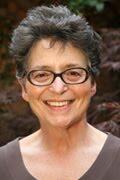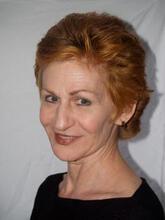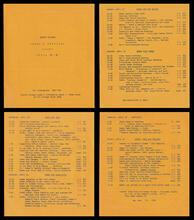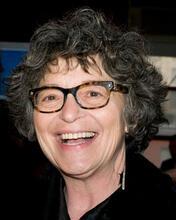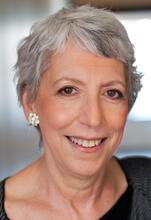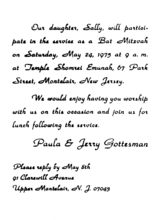Advancing Women Professionals in the Jewish Community
Advancing Women Professionals and the Jewish Community (AWP) was founded in 2001 by Shifra Bronznick “to advance Jewish women into leadership, stimulate new models of shared leadership, and promote policies that lead to healthy, effective workplaces.” Over fifteen years, AWP pursued groundbreaking research and developed signature programs, including Action Learning Teams of emergent women leaders, an influential Men as Allies Initiative, and the Better Work, Better Life Campaign, which led to improved paid leave and workplace flexibility policies at more than 100 Jewish organizations. In 2015, AWP elected to close as a stand-alone organization, having developed its unique Exist Strategy, which equipped its network of individual and institutional partners with the methodology and tools to carry forward the work of gender equity and women’s leadership.
From 2001 to 2015, Advancing Women Professionals and the Jewish Community (AWP) acted as the primary catalyst for gender equity and systems change throughout the Jewish community. Conceived as an intervention “to advance Jewish women into leadership, stimulate new models of shared leadership, and promote policies that lead to healthy, effective workplaces,” AWP launched research initiatives, trained hundreds of women, engaged men as allies, and created signature programs and advocacy campaigns, laying the foundation for a more inclusive Jewish nonprofit sector.
Catalyst for a Complacent System
In 2001, Advancing Women Professionals and the Jewish Community was created to address gender bias and the paucity of women leaders throughout Jewish institutional life. The disparity was stark. Jewish women had attained chief executive roles in universities and foundations and were bringing their wisdom to the Senate and the Supreme Court. By contrast, fewer than ten percent of Jewish communal organizations had a woman at the helm, despite the fact that the organizations were staffed 75 percent by women. The reigning assumption was that female leaders would emerge through generational transfer.
Founder and President Shifra Bronznick (b. 1954) partnered with philanthropist Barbara Dobkin (b.1943) to shatter this complacency about the gender gap and to dismantle barriers holding women back. From the outset, they framed AWP as a catalyst rather than a service provider. Bronznick came to AWP as a social change strategist in the Jewish and secular nonprofit sectors, her advocacy rooted in Jewish feminism of the 1970s. Board Chair Barbara Dobkin was renowned as an activist-donor on behalf of Jewish women and girls. Bronznick and Dobkin assembled a board of influential leaders, including Cindy Chazan, then Vice President of the Wexner Foundation, family therapist Judith Stern Peck, and Audrey Weiner, then President and CEO of the Jewish Home and Hospital Lifecare System. Over fifteen years, AWP enlisted a lean cadre of staff and consultants, including Didi Goldenhar, Aliza Kline, Hillary Leone, and Rabbi Joanna Samuels. With initial support from the Trust for Jewish Philanthropy and major funding from the Dobkin Family Foundation, AWP engaged a circle of donors, including Froma Benerofe, Alisa Doctoroff, Sally Gottesman, the Walter & Elise Haas Foundation, and the Joseph & Harvey Meyerhoff Family Foundation.
Research as a Lever for Change
AWP conducted baseline research to provide the Jewish community with a common fact base. The first study, “Gender Equity and Organizational Effectiveness in the Federation System” (2003), revealed highly gendered assumptions about women’s leadership capacity and fundraising potential, through interviews with CEOs, senior executives, and volunteer leaders. The second study, “Cultivating the Talent: Women Professionals in the Federation System” (2006), documented how the ambition of women professionals for top positions was thwarted by gender bias in hiring and promotion practices, weak professional development, and poor work-life policies. These and subsequent studies led to several action-research projects within Hillel, New York’s Jewish Board of Family and Children’s Services, and the Conservative Movement.
AWP’s research fortified gender as a critical issue within broader communal conversations. Bronznick and colleagues presented at the Jewish Federations’ General Assembly, the Wexner Leadership Institute, the Jewish Funders Network, and other major conferences. AWP hosted many convenings, including Influence and Impact with Ma’yan: The Jewish Women’s Project of the JCC in Manhattan for women volunteer leaders; Bay Area Leadership Conferences for networks of Jewish women professionals, and Conference for Change, co-created with the Schusterman and Berrie Foundations, where professionals, volunteers, and advocates addressed intersectional issues affecting women, LGBTQ Jews, and Jews of Color.
Adapting and Teaching Best Practices
AWP adapted best practices on closing the gender gap from academia, corporations, and other professions. Leading scholars, including Lotte Bailyn at M.I.T. Sloan School of Management, Joyce K. Fletcher at the Center for Gender in Organizations at Simmons College, and Virginia Valian at CUNY’s Hunter College, contributed critical insights on the link between equity and effectiveness and how obstacles for women hold everyone back from high performance.
Adaptive Leadership Theory, developed by Ronald Heifetz and Marty Linsky at Harvard University, also contributed to AWP’s intellectual evolution. While technical challenges are solved with expertise or logic, adaptive challenges compel people to align their stated values with daily behaviors. AWP’s guidebook, Leveling the Playing Field: Advancing Women in Jewish Organizational Life (2008), co-authored by Linsky, Bronznick, and Goldenhar, used Adaptive Leadership Theory as a lens on Jewish institutional norms and outlined strategies for people to be change agents on behalf of gender equity.
Signature Programs for Systems Change
AWP’s three signature programs—Action Learning Teams, Men as Allies, and the Better Work, Better Life Campaign—engaged individuals and organizational teams to challenge norms and policies in Jewish life.
Action Learning Teams (ALT) engaged nearly 100 emerging women leaders in peer cohorts to pursue a dual, intersecting agenda: advancing personal leadership while driving systems change in their organizations or community contexts. AWP facilitated and provided essential skills, including negotiation training through a gender lens. Over the eighteen-month duration, ALT members—communal executives, rabbis, professors, and start-up founders—achieved breakthrough promotions, raises, speaking engagements, and seats at decision-making tables. Among the systemic outcomes were greater parity in recruitment and selection processes and improved work-life policies at members’ organizations.
AWP also mentored and advocated for hundreds of women in the Jewish community. Many professionals, clergy, and volunteer leaders benefited from AWP’s negotiation training and its partnership with the Op-Ed Project and Clal – The National Jewish Center for Learning and Leadership, which trained them to bring their voices and increase their visibility in the Jewish public square. AWP partnered with Yeshivat Maharat, [link to new entry on Yeshivat Maharat] the first rabbinical school in North America to train and ordain Orthodox women, and piloted their inaugural leadership program.
AWP’s Men as Allies Initiative called on Jewish men to change the narrative about Jewish wisdom. The first step was a “pledge” not to participate on all-male public panels, conferences, or committees. Nearly 100 institutional executives, volunteer leaders, rabbis, and scholars joined the effort. The pledge led to greater accountability as allies engaged in dialogue with colleagues, questioning entrenched assumptions and encouraging a wider circle of expertise. Others increased their allyship by advocating for gender pay equity and recommending women colleagues for promotions and prizes. The influence of Men as Allies extended into the secular foreign policy, culture, and finance sectors, as showcased by the work of Gender Avengers and in an Atlantic article inviting the technology sector to adopt AWP’s pledge.
The Better Work, Better Life Campaign challenged the Jewish community to adopt formal flexibility and paid parental leave policies. The Campaign was launched in 2009 with a survey that found only 35 percent of Jewish organizations offering paid leave and flexibility offered only on an ad hoc basis. Most CEOs cited budget constraints as an insurmountable obstacle to paid leave and questioned the work ethic of those seeking flexible options.
Over six years, AWP partnered with the National Partnership for Women and Families, A Better Balance, and the Flex+Strategy Group to support human resource directors and make the case for policies that would lead to more effective organizations while reflecting Jewish values. In December 2015, the Better Work, Better Life Celebration honored the first 100 organizations to adopt improved workplace policies, reinforcing the history of earlier Jewish-led labor movements. Some groups later joined Lead on Lead, the national movement for paid leave.
The Exist Strategy: Seeding the Future of Gender Equity
From the start, AWP had been framed as an intervention rather than a permanent institution. In 2012, AWP launched its Exist Strategy, a three-year initiative toward closure as a stand-alone organization. In contrast to “exit strategies” typical of the nonprofit sector, the “Exist Strategy” was an intentional effort. The goal was to equip and empower AWP’s network of individuals and organizations in carrying forward the work of gender equity and women’s leadership. Much had been achieved. Yet important work remained to close the gender gap in pay, craft equitable systems for executive recruitment, and focus on advancement for Jewish women of color.
The first initiatives arising from the Exist Strategy included the Shalom Hartman Institute of North America’s Created Equal, an educational seminar for clergy, educators, and lay leaders; Slingshot’s new edition showcasing programs for women and girls, and the commitment of Clal to a long-term partnership with the Op-Ed Project.
By the time of its formal closure in 2015, AWP had demonstrated significant impact. More than 100 Jewish institutions had implemented formal flexibility and paid leave policies. All-male plenaries were fewer in number and evoked immediate protest from a wide array of leaders and activists. Many more women professionals were directing major institutions, foundations, synagogues, spiritual communities, social service agencies, social justice organizations, and national publications. AWP had been featured for ten years in Slingshot, the Jewish community’s resource guide to innovation, and more than half the start-ups cited by Slingshot were led by women.
By 2020, the Exist Strategy had contributed to bold new initiatives, including the Gender Equity in Hiring Project, the Pay Equity Initiative launched by the Women’s Rabbinic Network of the Reform Movement, and gender-based research conducted by Leading Edge, an organization mandated to fortify the Jewish leadership pipeline. On Facebook, “Year of the Jewish Woman (and Allies)” became a hub for crowdsourcing solutions and sharing successes. On Instagram, male allies noted their actions to “Live the Pledge.” As the #MeToo movement surfaced issues of gender abuse and sexual harassment in the Jewish community, the Safety Equity Respect Coalition (SRE) and Ta’amod supported individual women and developed appropriate norms, standards, and accountability. The courage and commitment of these efforts demonstrated AWP’s belief that people can make enduring, systemic change from wherever they sit in the Jewish communal world.
Books
Babcock, Linda and Sara Laschever. Ask For It: How Women Can Use the Power of Negotiation to Get What They Really Want. New York: Bantam, 2009.
Bronznick, Shifra, Marty Linsky, and Didi Goldenhar. Leveling the Playing Field: Advancing Women in Jewish Organizational Life. Advancing Women Professionals and Cambridge Leadership Associates, 2008.
Heifetz, Ronald and Marty Linsky. Leadership on the Line: Staying Alive Through the Dangers of Leading. Cambridge: Harvard Business Review Press, 2002.
Rapoport, Rhonda, Lotte Bailyn, Joyce K. Fletcher, and Bettye H. Pruitt. Beyond Work-Family Balance: Advancing Gender Equity and Workplace Performance. San Francisco: Jossey-Bass, 2001.
Valian, Virginia. Why So Slow? The Advancement of Women. Cambridge: The MIT Press, 1999.
RESEARCH REPORTS
Bronznick, Shifra, Steven M. Cohen, Sherry Israel, and Shaul Kelner. Creating Gender Equity and Organizational Effectiveness in the Jewish Federation System. Advancing Women Professionals and the Jewish Community and United Jewish Communities, 2004. http://advancingwomen.org/wp-content/uploads/2013/09/Creating-Gender-Equity-and-Organizational-Effectiveness-in-the-Jewish-Federation-System-Report.pdf
Bronznick, Shifra, Didi Goldenhar, and Rachael Ellison. Better Work, Better Life – Practices and Policies in Jewish Organizations. Advancing Women Professionals and the Jewish Community, 2010. http://advancingwomen.org/wp-content/uploads/2013/09/Better-Work-Better-Life-Practices-and-Policies-in-Jewish-Organizations-Report1.pdf
Goldenhar, Didi and Sivanie Shiran. Cultivating the Talent – Women Professionals in the Federation System, Advancing Women Professionals and the Jewish Community and United Jewish Communities / Mandel Center for Organizational Excellence, 2007. http://advancingwomen.org/wp-content/uploads/2013/09/Cultivating-the-Talent-Women-Professionals-in-the-Federation-System.pdf
ARTICLES
Better Work, Better Life Campaign
Bronznick, Shifra, Didi Goldenhar, and Joanna Samuels. “Women as Leaders in Judaism.” In Gender and Women’s Leadership: A Reference Handbook (Volume 2, pp. 513-522), edited by Karen O’Connor. Thousand Oaks, CA: Sage Publications, Inc., 2010.
Bronznick, Shifra and Hillary Leone. “Making Paid Leave Big Enough to Matter and Small Enough to Achieve” Huffington Post, May 22, 2016. https://www.huffpost.com/entry/making-paid-leave-big-enough-to-matter-and-small-enough-to-achieve_b_7425332
Bronznick, Shifra and Hillary Leone. “Tackling the Resistance to Paid Leave.” Huffington Post, October 6, 2016. https://www.huffpost.com/entry/tackling-the-resistance-t_b_8253712?1444163708=
Wiener, Julie. “With a Nudge From Advocates, More Jewish Groups Embracing Paid Parental Leave.” Jewish Telegraphic Agency, April 17, 2014. https://www.jta.org/2014/04/17/news-opinion/united-states/with-a-nudge-from-advocates-more-jewish-groups-embracing-paid-parental-leave
Yost, Cali Williams. “How to Make 100 Organizations in the Same Industry More Flexible: Key Lessons Learned.” Fast Company, March 7, 2011. https://www.fastcompany.com/1735749/how-make-100-organizations-same-industry-more-flexible-key-lessons-learned
Men as Allies
Askew, Susan. “How to End All-Male Panels: The Pledge, the GA Tally, and You.” Gender Avenger, May 20, 2015. https://www.genderavenger.com/blog/how-to-end-all-male-panels.
Bronznick, Shifra and Anne Weisberg. “Women in the Spotlight: If Google and SXSW Can Do It, So Can You.” Forbes, June 3, 2014. https://www.forbes.com/sites/forbeswomanfiles/2014/06/03/women-in-the-spotlight-if-google-and-sxsw-can-do-it-so-can-you/#cebf72e21a82
Kelner, Shaul Kelner. “A Mitzvah of Egalitarianism.” ejewishphilanthropy, September 8, 2011. http://ejewishphilanthropy.com/a-mitzvah-of-egalitarianism/
Kustanowitz, Esther D. “Calling Out All-Male Panels, One Blog at a Time.” Haaretz, May 26, 2015. https://www.haaretz.com/jewish/reducing-the-schmuck-quotient-1.5365860
Rosen, Rebecca J. “A Simple Suggestion to Help Phase Out All-Male Panels at Tech Conferences.” The Atlantic, January 4, 2013. https://www.theatlantic.com/technology/archive/2013/01/a-simple-suggestion-to-help-phase-out-all-male-panels-at-tech-conferences/266837/
The Exist Strategy
Bronznick, Shifra and Barbara Dobkin. “Advancing Women Professionals: From Catalytic Intervention to Network of Catalysts” ejewishphilanthropy, October 14, 2013. http://ejewishphilanthropy.com/advancing-women-professionals-from-catalytic-intervention-to-network-of-catalysts/
Bronznick, Shifra, Hillary Leone, and Didi Goldenhar. “A Look Back from Advancing Women Professionals (and a Sneak Peak from Slingshot).” ejewishphilanthropy.com https://ejewishphilanthropy.com/a-look-back-from-advancing-women-professionals-and-a-sneak-peak-from-slingshot/
Bronznick, Shifra and Rabbi Joanna Samuels. “On the Verge of Real Change.” Shma, November 1, 2012. http://shma.com/files/2012/11/on-the-verge-of-real-change/
Cohen, Debra Nussbaum. “U.S. Women’s Advocacy Group Closes, But Its Mission Lives On.” Haaretz, November 6, 2015. http://advancingwomen.org/wp-content/uploads/2015/03/AWP-Haaretz.pdf
Emergence of the Exist Strategy
Co-authored by the women of the 5779: Year of the Jewish Woman Facebook Group.* “The Week That All Jewish Women Turned Invisible.” Ejewishphilanthropy, August 15, 2019. https://ejewishphilanthropy.com/the-week-that-all-jewish-women-turned-invisible/
*Black, Jamie Allen, Shifra Bronznick, Miriam Brosseau, Rachel Gildner, Ginna Green, Sheila Katz, Idit Klein, Esther D. Kustanowitz, Joy Ladin, Sara Shapiro-Plevan, and Halie Soifer, Halie.
Blumenkranz, Stephanie, Rabbi Marla J. Feldman, and Rabbi Mary Zamore. “On Equal Pay Day: Building a Community on a Foundation of Justice.” ejewishphilanthropy, April 4, 2017. https://ejewishphilanthropy.com/on-equal-pay-day-building-a-community-on-a-foundation-of-justice/
Bronznick, Shifra and Emma Bronznick Goldberg. “Rewriting the Rules and Breaking the Wage Gap Silence.” CCAR Journal: The Reform Jewish Quarterly, Fall 2018.
Dobkin, Barbara, Shifra Bronznick, and Rabbi Joanna Samuels. “We Too.” ejewishphilanthropy, January 18, 2018. https://ejewishphilanthropy.com/we-too/
Epstein, Shira D. and Andrea Jacobs. “Gender Equity and Leadership Initiative.” Jewish Theological Seminary/William Davidson Graduate School of Education, Spring 2019.
Flax, Rabbi Ellen and Mijal Bitton. “Created Equal: Expanding Current Conceptions of Leadership in the Jewish Community.” ejewishphilanthropy, February 24, 2016. http://ejewishphilanthropy.com/created-equal-expanding-current-conceptions-of-leadership-in-the-jewish-community/
Gildiner, Rachel, Haley Schreier, and Tilly Shames. “Ally is a Verb.” ejewishphilanthropy, December 5, 2019.
Namerow, Jordan and Lilach Shafir. “Five Feminist Principles to Strengthen Jewish Organizations Today.” ejewishphilanthropy, November 9, 2017. http://ejewishphilanthropy.com/five-feminist-principles-to-strengthen-jewish-organizations-today/
Prince, Cathryn J. “Women Forge New Coalition to Smash Ceilings in Jewish Nonprofit Boys Clubs” The Times of Israel, October 24, 2019. https://www.timesofisrael.com/women-forge-new-coalition-to-smash-ceilings-in-jewish-nonprofits-boys-clubs/
Shapiro-Plevan, Sara, Rabbi Rebecca W. Sirbu, and Allison Fine. “Gender Equity in Hiring: It is Time.” ejewishphilanthropy, March 19, 2018.
Ulinich, Anya. “Three Things You Can Do to Close the Gender Gap.” The Forward, December 14, 2015. https://forward.com/opinion/editorial/326559/3-things-you-can-do-to-help-close-the-gender-gap/
Resources
Created Equal Project: https://www.hartman.org.il/program/created-equal/
Gender Equity in Hiring Project: https://www.genderequityinhiringproject.org/learning
Leading Edge: https://www.leadingedge.org/
Live the Pledge: https://www.livethepledge.com/
Op-Ed Project: https://www.theopedproject.org/
Reform Pay Equity Initiative: https://reformpayequity.org/
Safety Respect Equity Network: https://safetyrespectequity.org/
Ta’amod: Stand Up: https://taamod.org/





